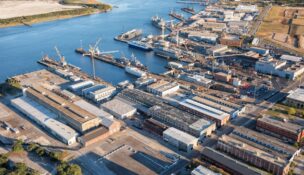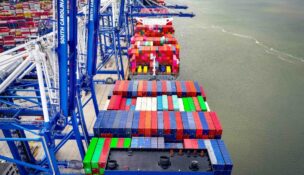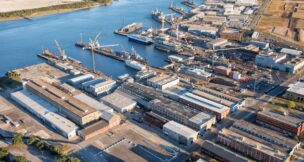Port looks to buy industrial site in Dorchester County
Staff //May 1, 2018//
Editor's note: An earlier version of this story incorrectly stated the county in which the industrial park sits. It is in Dorchester County.
The S.C. Ports Authority has made an offer on a 1,000-acre industrial park tract along exit 187 off Interstate 26 in Dorchester County.
Jim Newsome, president and CEO of the ports authority, said the port wants to ensure the land will be used by port-related businesses, rather than becoming mega housing developments with commercial and retail space. If the sale goes through, the port plans to sell parcels to companies or private developers.
No deal has been finalized for the tract, an industrial park owned by WestRock. Due diligence on the port’s offer is underway.
The site has 750 acres of useable land and is served by Norfolk Southern rail.
“When they listed it, we decided that we should not let that land get away from port-related use. … We’re not buying it to operate ourselves, but we wanted to control it for the purpose of getting the right businesses in there to meet our needs,” Newsome said.
The port has been selling off its real estate holdings not used for port operations in recent years, including its headquarters building along Concord Street in downtown Charleston and the defunct terminal in Port Royal. Newsome said the potential purchase of the site, located near Volvo Cars’ new Berkeley County campus, does not change that mission.
“We have our plates full with what we’re doing, but it would have been irresponsible for us to let that land get away,” Newsome said. “Big tracts of land like that that are rail-served are very important to the port.”
Newsome said the land could be used for companies to open distribution centers or transload operations to move more cargo to and from the port and for reducing the number of empty containers flowing through its supply chain.
For example, a container coming into the Port of Charleston filled with parts to make Volvo cars could be emptied at the Volvo plant and then head to the port’s industrial site, where it could then be filled with plastic, forestry or agricultural products for export.
-















